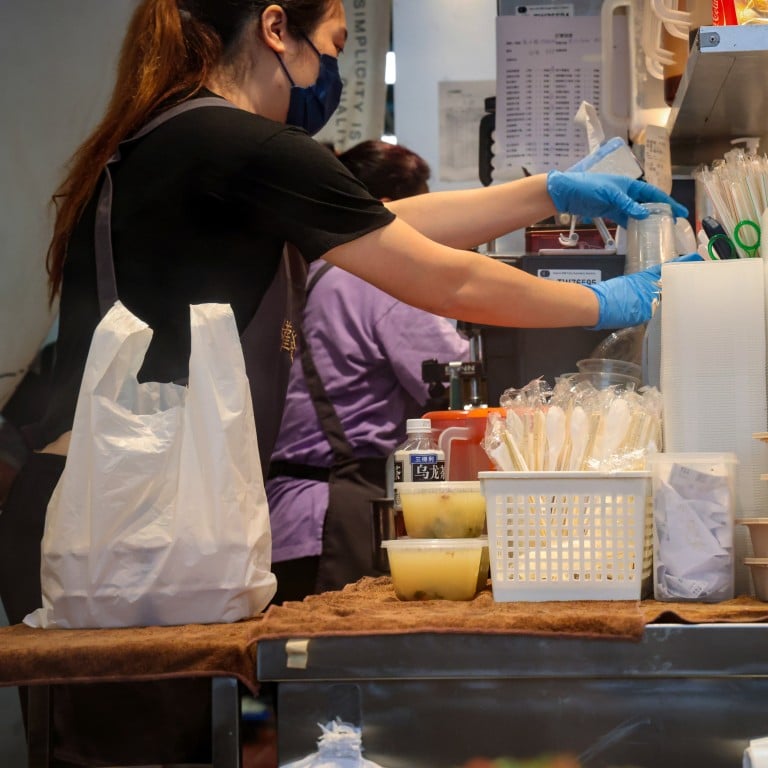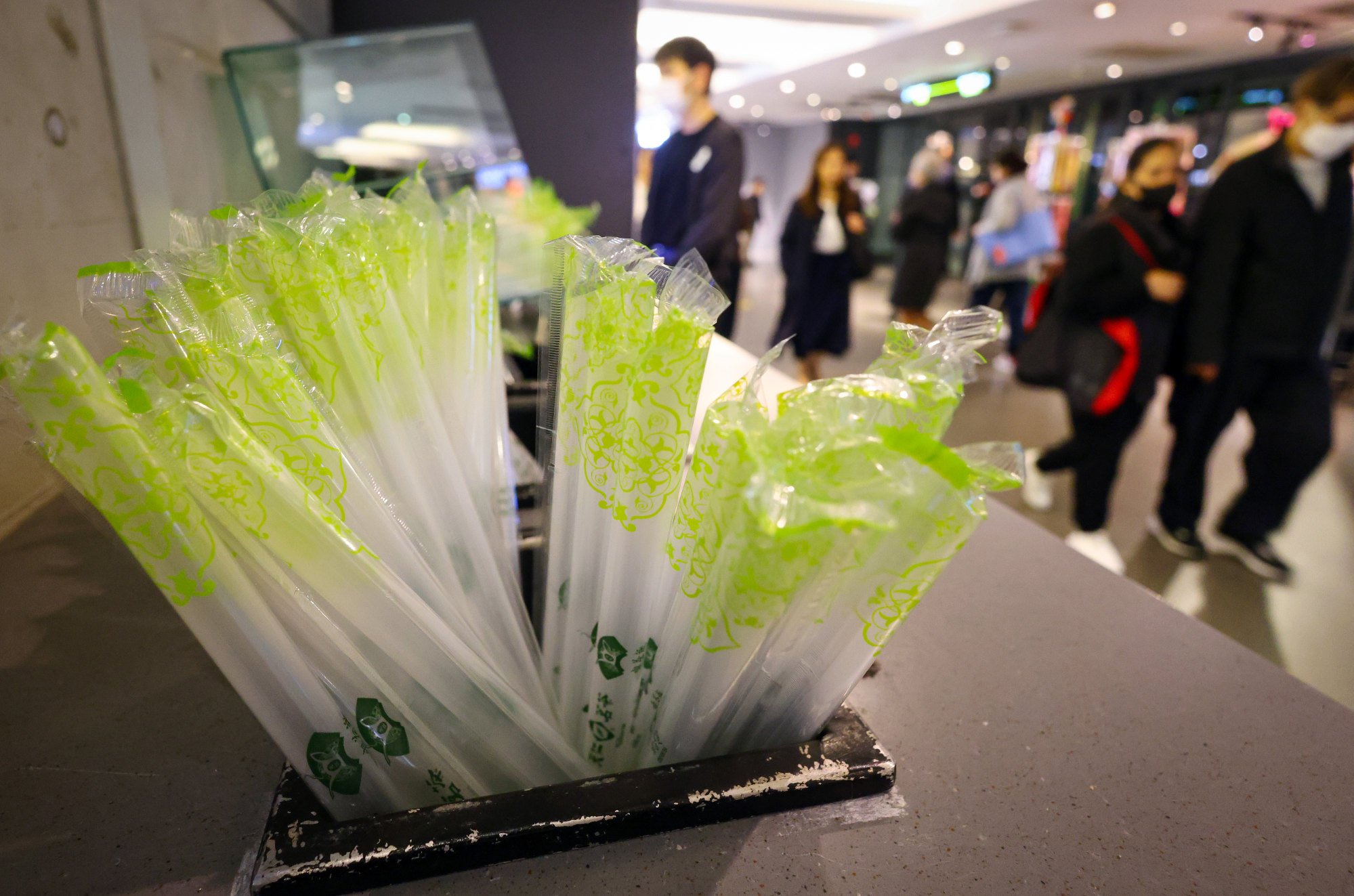
Hong Kong restaurants are ready for disposable plastics ban next month, but concerned over costs of alternatives, sector says
- Catering sector pushes back against claims by environment minister that 80 pre cent of small and medium-sized restaurants are not prepared for coming ban
- From April 22, restaurants will no longer be able to offer customers polystyrene products, disposable plastic straws, stirrers, cutlery or plates for dine-in and takeaway
Hong Kong restaurants are ready for next month’s ban on throwaway plastic tableware but are concerned about the costs of shifting to wooden and paper alternatives, catering sector representatives have said.
Simon Wong Kit-lung, the honorary president of the Institute Of Dining Professionals, on Thursday poured cold water on claims made by the environment secretary, who highlighted a survey that found up to 80 per cent of small and medium-sized restaurants were not prepared.
Wong said restaurants might appear “unprepared” because of a six-month grace period which would take effect after the implementation of the ban on April 22.
He added that the trade also had to use up their inventory of plastic materials.
“It wouldn’t be surprising if they found out that many restaurants hadn’t shifted to using wooden tableware,” Wong told a radio programme.
“Wooden tableware can be as much as twice the price of conventional plastic tableware,” he said. “This is why many restaurants would choose to put it off until the last moment.”
But he added the situation would be “worth being concerned about” if the environment secretary had been referring to the number of restaurants that were unaware of the new policy.
Tse Chin-wan, the Secretary for Environment and Ecology, told lawmakers on Wednesday that the Environmental Protection Department had started to survey 20,000 small and medium-sized restaurants late last year and 80 per cent were found to be not ready for the ban.
Restaurants will no longer be able to offer customers any polystyrene products, disposable plastic straws, stirrers, cutlery or plates for dine-in and takeaway services after the first phase of the ban comes into force.
Hong Kong restaurants say plastic ban will cost too much to implement
They will also not be allowed to provide single-use cups, cup lids or food containers to dine-in customers.
Some lawmakers said many members of the public did not understand the new regulations, even if they approved of measures to support environmental protection.
“When it comes to the specific operations, there will be a lot of questions,” lawmaker Gary Chan Hak-kan said. “It is particularly challenging for small and medium-sized enterprises to grasp the policy content.”
The government has faced criticism over a lack of public education about the ban in the run-up to the implementation of the first phase of the two-stage process.
Tse on Wednesday also admitted that past publicity work had not been helpful enough.
Wong stressed that finding non-plastic alternatives was not difficult, but the government should instead pay more attention to the ban’s ultimate purpose, which was to reduce waste by eliminating disposable tableware.
Simon Wong Ka-wo, the president of the Hong Kong Federation of Restaurants and Related Trades, said the policy had yet to be implemented, so most restaurants had not started using non-plastic alternatives.

He added the sector had not raised any concerns to indicate that the ban should be postponed.
Leanne Tam Wing-lam, a campaigner for environmental organisation Greenpeace, warned that a switch to to non-plastic disposable tableware alone would not help solve the city’s severe waste problems.
“Every day, 227 tonnes of disposable plastic tableware are sent to landfills,” she said.
“It actually won’t help reduce waste if we just turn these plastics into other disposable substitutes.”
Tam said authorities should instead try to reduce waste with a multipronged approach, such as the establishment of a mechanism for reusable containers and tableware for food takeaways.
Tse earlier said authorities would strengthen support for the restaurants and warned that they would resort to law enforcement actions even during the six-month grace period if repeated advice went unheeded.
People found to have breached the ban could face a maximum fine of HK$100,000 (US$12,800). Law enforcement officers can also issue HK$2,000 tickets if the retailers or people in charge of such catering premises are caught red-handed.
The ban also covers products with non-plastic alternatives, such as cotton buds, umbrella covers and glow sticks.
A lack of public knowledge about a separate waste-charging scheme has already forced the government to delay its implementation from April 1 to August 1.
